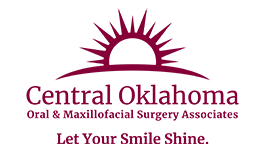15 Jul Is chewing gum bad for your jaw?
 Chewing gum can help people calm their nerves or prevent them from overeating or smoking, but a zealous habit of gum chewing may actually put your oral health at risk. Patients who have a temporomandibular joint (TMJ) disorder or those who are predisposed to other jaw problems may develop discomfort or other issues like clicking or popping noises in the jaw when they chew too much gum.
Chewing gum can help people calm their nerves or prevent them from overeating or smoking, but a zealous habit of gum chewing may actually put your oral health at risk. Patients who have a temporomandibular joint (TMJ) disorder or those who are predisposed to other jaw problems may develop discomfort or other issues like clicking or popping noises in the jaw when they chew too much gum.
A small amount of sugarless gum chewing (such as after meals) can actually promote healthy teeth and gums by stimulating the production of saliva that clears away bacteria. It’s easy to overdo it, though, either by chewing gum excessively or by chewing in a way that overuses your jaw muscles and could exacerbate an existing TMJ disorder.
If you notice pain or other TMJ symptoms while you are chewing gum, you should abstain from this habit until you can be evaluated by a dental professional, such as an oral surgeon, to determine whether a TMJ disorder is present in your case.
Effective treatments are available for TMJ disorder, but in certain cases in which a structural defect is at fault, this condition may require jaw surgery to correct the defect that is causing the malfunction of the jaw. However, your oral surgeon is likely to explore more conservative alternatives to see if you get any symptom relief before recommending a surgical procedure. Often, patients find that their discomfort resolves when they take over-the-counter painkillers or do special exercises to target the muscles associated with the jaw.
If you have a TMJ disorder or are at risk for developing one, chewing gum can be harmful to your jaw. Patients who experience pain while chewing gum or notice other symptoms like clicking or locking of the jaw should discontinue gum chewing to see if their symptoms resolve. They should also schedule an evaluation at our office to learn if a TMJ disorder is causing their issues.
Call us today at Central Oklahoma Oral & Maxillofacial Surgery Associates to determine if you need TMJ treatment.
